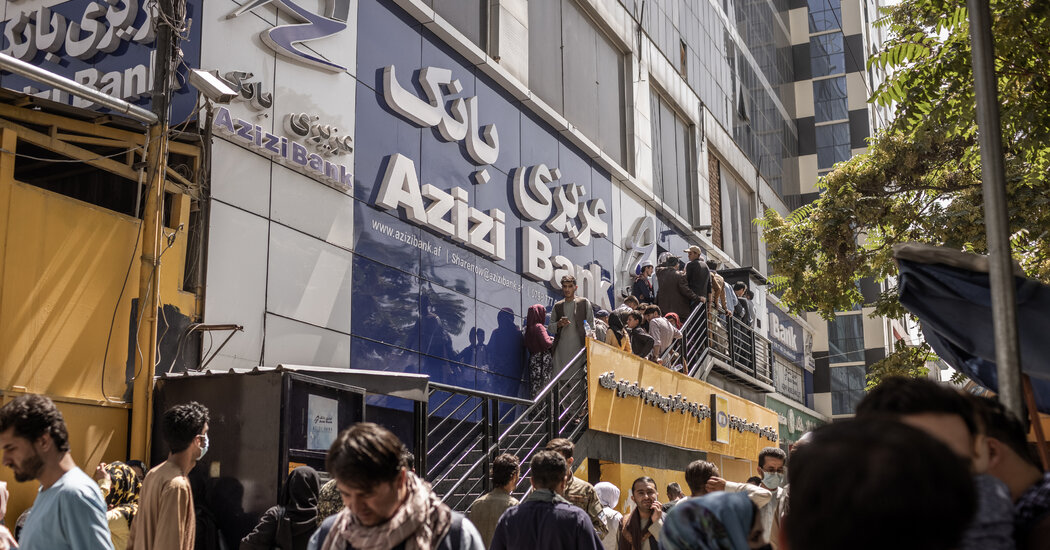
Other sources of funding would be difficult to get. The Taliban could seek financial support from China, with which it held high-profile talks last month. But so far, China hasn’t shown an eagerness to increase its role in Afghanistan. The Taliban could try to take advantage of the country’s vast mineral resources through mining, or finance operations with money from the illegal opium trade. Afghanistan is the world’s largest grower of poppy used to produce heroin, according to data from the United Nations Office on Drugs and Crime.
But these alternatives are all “very tough,” Mr. Ahmady said. “Probably the only other way is to negotiate with the U.S. government.”
Afghanistan has about $700 million at the Bank for International Settlements, Mr. Ahmady said. The bank, which serves 63 central banks around the world, said on Wednesday that it “does not acknowledge or discuss banking relationships.”
On Wednesday, Mr. Ahmady wrote on Twitter that Afghanistan had relied on shipments of U.S. dollars every few weeks because it had a large current account deficit, a reflection of the fact that the value of its imports are about five times greater than its exports.
Those purchases of imports, often paid in dollars, could soon be squeezed.
“The amount of such cash remaining is close to zero due a stoppage of shipments as the security situation deteriorated, especially during the last few days,” Mr. Ahmady wrote.
He recalled receiving a call on Friday saying the country wouldn’t get further shipments of U.S. dollars. The next day, Afghan banks requested large amounts of dollars to keep up with customer withdrawals, but Mr. Ahmady said he had to limit their distribution to conserve the central bank’s supply. It was the first time he made such a move, he said.
Mr. Ahmady said that he had told President Ashraf Ghani about the cancellation of currency shipments, and that Mr. Ghani had then spoken with Secretary of State Antony J. Blinken. Though further shipments were approved “in principle,” Mr. Ahmady said, the next scheduled shipment, on Sunday, never arrived.







